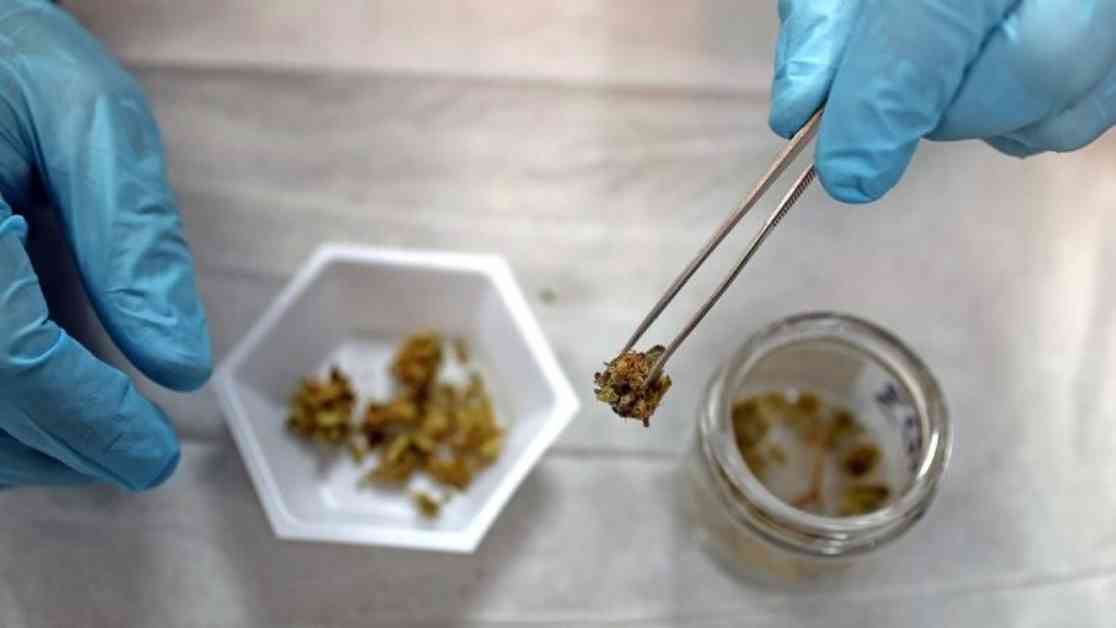Moldy cannabis concerns have been brewing beneath the surface of Massachusetts’ marijuana industry, raising alarms among workers and advocates alike. The Massachusetts Cannabis Control Commission (CCC) recently issued a consumer advisory highlighting the presence of mold in select marijuana products sold between May 31, 2024, and Jan. 23, 2025. While no illnesses have been reported, and no products recalled as of yet, the issue may be more widespread than initially acknowledged.
In a candid conversation with Christopher Hudalla, Ph.D., Founder, and Chief Scientific Officer at ProVerde Laboratories in Milford, it is evident that the problem of mold contamination is more significant than meets the eye. Hudalla reveals that out of 100 retail samples tested, over 55 percent failed to meet the state’s safety criteria, shedding light on a critical health concern that demands immediate attention.
The Health Risks of Moldy Marijuana
Moldy marijuana poses severe health risks, ranging from respiratory issues to allergic reactions and fungal infections. A study conducted by the Centers for Disease Control (CDC) in 2020 found that cannabis users are 3.5 times more likely to develop fungal infections, underscoring the urgency of addressing mold contamination in cannabis products. The CCC advisory included a detailed chart listing affected strains, batch numbers, and retailers, urging consumers to check for potential contamination and contact the dispensary where they purchased the product.
Addressing the Issue of Worker Safety
Danny Carson, a prominent advocate for cannabis worker rights in Massachusetts, sheds light on the plight faced by many employees in the industry. Carson recounts stories of chronic coughs, skin rashes, headaches, and asthma-like symptoms reported by cannabis workers due to exposure to poor air quality and contaminated products. Employers, he notes, often overlook these concerns, failing to provide adequate protective equipment or address air quality issues effectively.
Carson’s journey into advocacy began after witnessing the tragic death of Lorna McMurrey, a 27-year-old worker from Springfield who passed away due to an asthma attack linked to exposure to cannabis dust and mold. Carson’s mission to advocate for better working conditions and transparency in the industry stems from a personal commitment to ensuring the safety of both workers and consumers. His efforts underscore the critical need for accountability and stringent safety standards in the cannabis sector.
The Path to Safer Cannabis Products
To address the pressing issue of mold contamination in cannabis products, Carson calls for stronger air quality and worker safety regulations, enhanced enforcement of lab testing standards, whistleblower protections for workers, a robust recall and contamination reporting system, and standardized safety protocols. Collaborating with legislators and advocacy groups, Carson aims to drive legislative changes that prioritize worker safety and consumer health in the cannabis industry.
As Massachusetts navigates the evolving landscape of cannabis testing and regulation, industry experts like Hudalla express cautious optimism for the future. While acknowledging the challenges posed by regulatory gaps and inconsistent enforcement, Hudalla emphasizes the need for sustained efforts to uphold safety standards and protect consumers and workers alike. The road ahead may be fraught with obstacles, but with a shared commitment to transparency and accountability, Massachusetts has the potential to set a national benchmark for cannabis safety.
In response to growing concerns, the CCC has announced plans to tighten testing reporting and data analysis through an administrative order set to take effect in April. By requiring licensees to submit test samples to a single independent laboratory for compliance testing, the commission aims to enhance the integrity of cannabis testing in Massachusetts. As the industry continues to mature, regulators remain vigilant in their efforts to ensure that consumers and patients have access to safe and fully tested products in the legal marketplace.
In conclusion, the journey towards a safer cannabis industry in Massachusetts is marked by challenges and opportunities alike. By prioritizing worker safety, consumer health, and regulatory compliance, the state has the potential to shape a more transparent and accountable cannabis landscape for the future. As advocates, experts, and regulators collaborate to address mold contamination concerns, the collective goal remains clear: to build a sustainable and safe cannabis industry that upholds the highest standards of quality and integrity.






